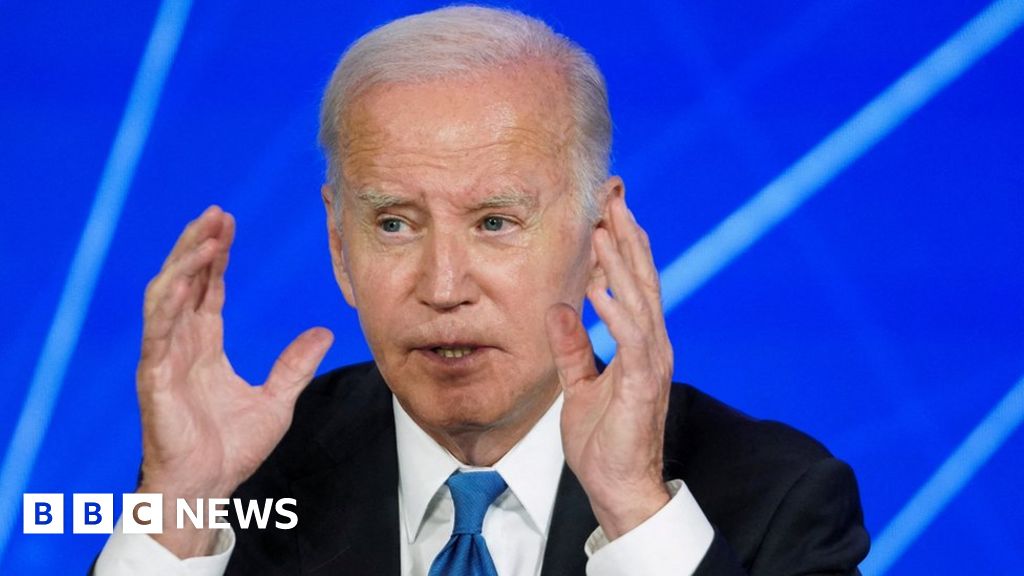By Derek Cai BBC News
US President Joe Biden has called Chinese President Xi Jinping a dictator at a fundraiser in California.
His remarks come a day after US Secretary of State Antony Blinken met Mr Xi for talks in Beijing, which were aimed at easing tensions between the two superpowers.
Mr Xi said some progress had been made in Beijing, while Mr Blinken indicated both sides were open to more talks.
China is yet to respond to Mr Biden's comments.
President Biden, at the fundraiser on Tuesday night local time, also said Mr Xi was embarrassed over the recent tensions around a Chinese spy balloon that had been blown off course over the US.
"The reason why Xi Jinping got very upset, in terms of when I shot that balloon down with two box cars full of spy equipment in it, was he didn't know it was there," Mr Biden said.
"That's a great embarrassment for dictators. When they didn't know what happened."
Mr Blinken's visit to Beijing - the first by a top US diplomat in almost five years - restarted high-level communications between the two countries. Both Mr Biden and Mr Xi hailed it as a welcome development. But Mr Blinken made clear that major differences remain between the two countries.
Washington and Beijing have long locked horns over an array of issues including trade, human rights, and Taiwan.
But relations have especially deteriorated in the past year. With the US election looming and tensions with China emerging as a political issue, some Republican senators have attacked the Biden administration for being "soft" on China.



I wish we had a Parenti bot. Nonfalsifiable Orthodoxy etc etc.
We do have a Parenti bot. Ahem Parenti quote.